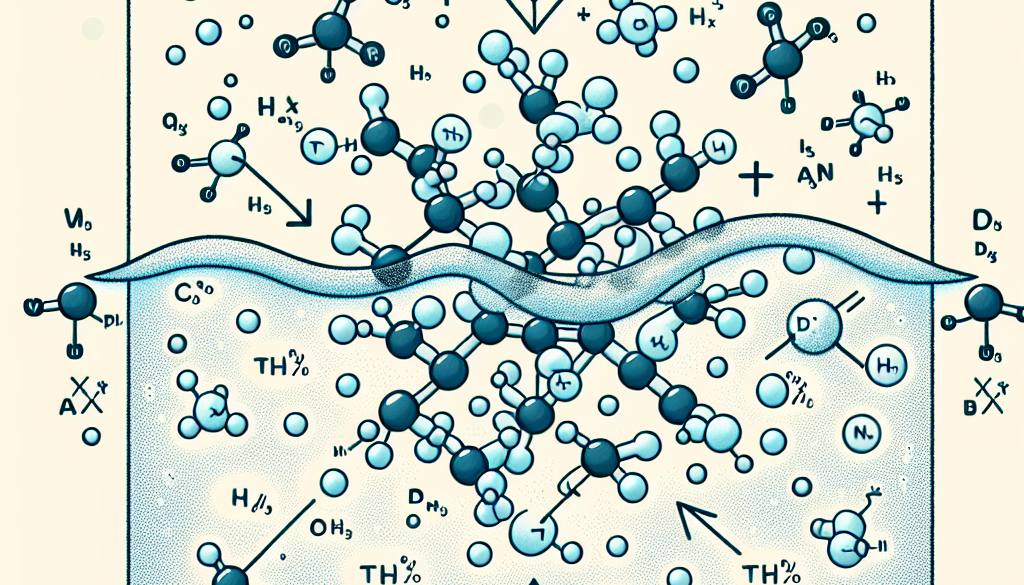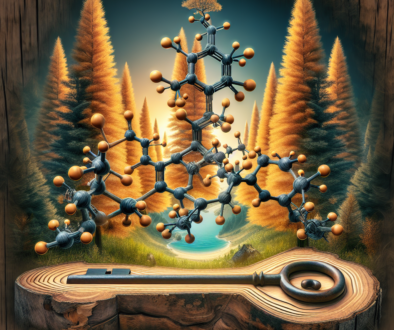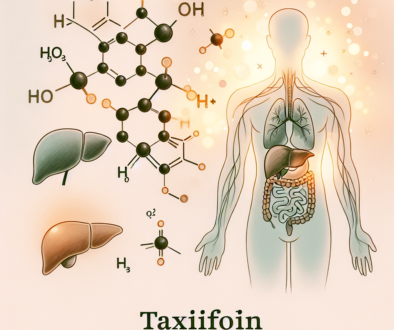What is the solubility of taxifolin?
-
Table of Contents
- Taxifolin Solubility: Understanding Its Chemical Properties and Applications
- Chemical Structure and Solubility of Taxifolin
- Factors Affecting Taxifolin Solubility
- Applications and Implications of Taxifolin Solubility
- Case Studies and Research on Taxifolin Solubility
- Conclusion: Key Takeaways on Taxifolin Solubility
- Discover ETprotein’s High-Quality Protein Products
Taxifolin Solubility: Understanding Its Chemical Properties and Applications

Taxifolin, also known as dihydroquercetin, is a flavonoid compound that has garnered significant attention due to its wide range of biological activities and potential health benefits. As with many bioactive compounds, the solubility of taxifolin plays a crucial role in its bioavailability, efficacy, and application in various industries. This article delves into the solubility characteristics of taxifolin, exploring the factors that influence it and its implications for use in pharmaceuticals, nutraceuticals, and food products.
Chemical Structure and Solubility of Taxifolin
The solubility of a compound is determined by its chemical structure and the medium in which it is dissolved. Taxifolin is a flavanonol, a type of flavonoid, which is characterized by a 15-carbon skeleton consisting of two phenyl rings and a heterocyclic ring. This structure influences its solubility in various solvents.
- Water Solubility: Taxifolin is moderately soluble in water. Its solubility is influenced by factors such as temperature, pH, and the presence of other substances.
- Organic Solvents: Taxifolin is more soluble in organic solvents like ethanol, methanol, and acetone. This property is beneficial for its extraction from natural sources and its incorporation into various formulations.
Understanding the solubility of taxifolin is essential for its effective use in different applications. For instance, in the pharmaceutical industry, solubility affects the drug’s absorption and bioavailability. In the food industry, solubility can impact the stability and efficacy of food additives.
Factors Affecting Taxifolin Solubility
Several factors can influence the solubility of taxifolin, including:
- Temperature: As with many compounds, the solubility of taxifolin generally increases with temperature.
- pH: The ionization state of taxifolin can change with pH, affecting its solubility. It tends to be more soluble in alkaline conditions.
- Presence of Cyclodextrins: Cyclodextrins can form inclusion complexes with taxifolin, enhancing its aqueous solubility.
- Formulation: The presence of other substances, such as surfactants or polymers, can also modify the solubility of taxifolin.
These factors must be carefully considered when developing taxifolin-containing products to ensure optimal solubility and effectiveness.
Applications and Implications of Taxifolin Solubility
The solubility of taxifolin has significant implications for its use in various industries:
- Pharmaceuticals: Enhancing the solubility of taxifolin can improve its bioavailability, making it more effective as a therapeutic agent.
- Nutraceuticals: Solubility affects the incorporation of taxifolin into dietary supplements and functional foods, influencing its health benefits.
- Food Industry: As an antioxidant, taxifolin can be used to preserve food products. Its solubility is crucial for its distribution and activity within the food matrix.
Research and development efforts continue to focus on improving the solubility of taxifolin to maximize its potential in these applications.
Case Studies and Research on Taxifolin Solubility
Several studies have been conducted to explore the solubility of taxifolin and its implications:
- A study on the encapsulation of taxifolin in cyclodextrins found an increase in water solubility, which could enhance its use in aqueous formulations.
- Research on taxifolin derivatives has shown that structural modifications can lead to improved solubility and bioactivity.
- Investigations into the use of nanotechnology have demonstrated that nanoencapsulation can significantly enhance the solubility and stability of taxifolin.
These studies highlight the ongoing efforts to overcome solubility challenges and expand the applications of taxifolin.
Conclusion: Key Takeaways on Taxifolin Solubility
In conclusion, the solubility of taxifolin is a critical factor that influences its practical applications and effectiveness. By understanding and manipulating the solubility characteristics of taxifolin, it is possible to enhance its bioavailability and functional properties. Ongoing research and technological advancements continue to unlock new possibilities for the use of taxifolin in various industries, promising to deliver its health benefits more effectively to consumers.
Discover ETprotein’s High-Quality Protein Products
If you’re interested in health and nutrition, consider exploring ETprotein’s range of protein products. ETprotein offers a variety of high-quality, organic bulk vegan proteins that cater to different dietary needs and preferences. Their products are characterized by a neutral taste, non-GMO, and allergen-free attributes, ensuring that you receive the purest form of protein for your health and wellness.
ETprotein’s offerings are not limited to protein powders; they also provide L-(+)-Ergothioneine (EGT) in various grades suitable for pharmaceutical, food, and cosmetic applications. With a commitment to quality and customer satisfaction, ETprotein is a trusted supplier for industries across the globe.
For more information or to sample their products, please contact ETprotein and email sales(at)ETprotein.com today.
About ETprotein:
ETprotein, a reputable protein and L-(+)-Ergothioneine (EGT) Chinese factory manufacturer and supplier, is renowned for producing, stocking, exporting, and delivering the highest quality organic bulk vegan proteins and L-(+)-Ergothioneine. They include Organic rice protein, clear rice protein, pea protein, clear pea protein, watermelon seed protein, pumpkin seed protein, sunflower seed protein, mung bean protein, peanut protein, and L-(+)-Ergothioneine EGT Pharmaceutical grade, L-(+)-Ergothioneine EGT food grade, L-(+)-Ergothioneine EGT cosmetic grade, L-(+)-Ergothioneine EGT reference grade and L-(+)-Ergothioneine EGT standard. Their offerings, characterized by a neutral taste, non-GMO, allergen-free attributes, with L-(+)-Ergothioneine purity over 98%, 99%, cater to a diverse range of industries. They serve nutraceutical, pharmaceutical, cosmeceutical, veterinary, as well as food and beverage finished product distributors, traders, and manufacturers across Europe, USA, Canada, Australia, Thailand, Japan, Korea, Brazil, and Chile, among others.
ETprotein specialization includes exporting and delivering tailor-made protein powder and finished nutritional supplements. Their extensive product range covers sectors like Food and Beverage, Sports Nutrition, Weight Management, Dietary Supplements, Health and Wellness Products, and Infant Formula, ensuring comprehensive solutions to meet all your protein needs.
As a trusted company by leading global food and beverage brands and Fortune 500 companies, ETprotein reinforces China’s reputation in the global arena. For more information or to sample their products, please contact them and email sales(at)ETprotein.com today.












